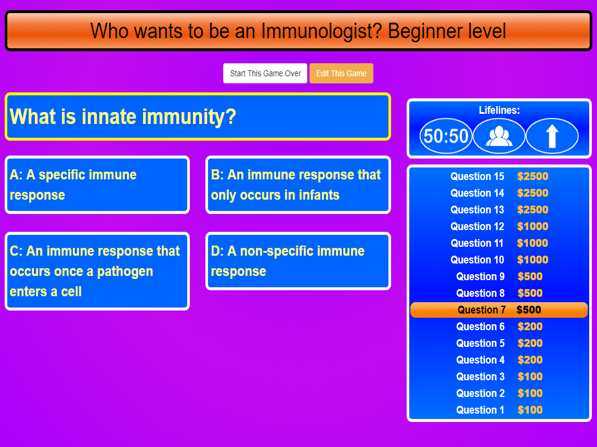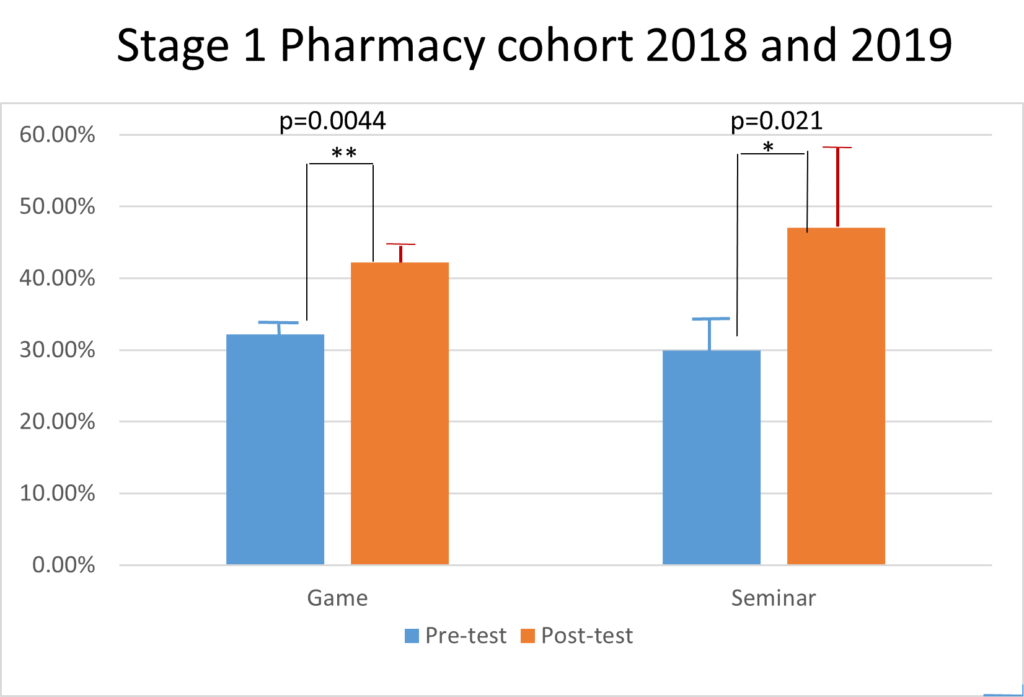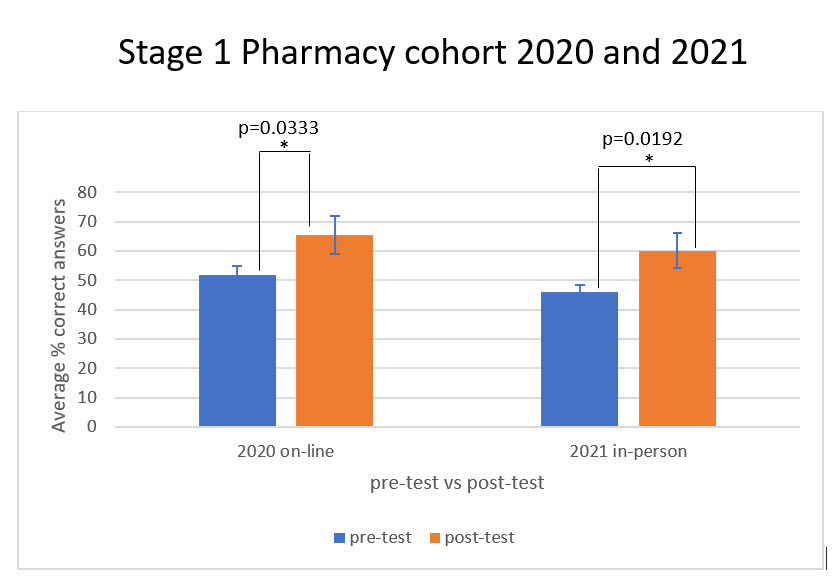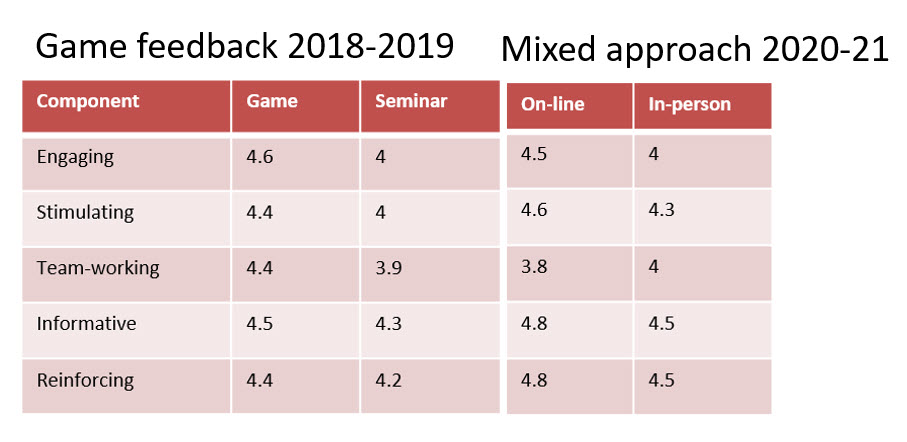Dr Alessio Iannetti, Lecturer
School of Pharmacy (until 2022), School of Biomedical, Nutritional and Sports Sciences (2022-present)
Faculty of Medical Sciences
What did you do?
I used an adapted version of “Who wants to be a millionaire?” as part of my biology seminars for Stage 1 Pharmacy-students. I did this to make the seminar sessions more fun and engaging thanks the competitive nature of the game, while testing a new approach to facilitate student knowledge retention on a difficult topic of biology. Due to the COVID-19 restrictions in 2020, I then implemented an online seminar maintaining the competitive element of the game via an individual leader board competition.
Who is involved?
Dr Alessio Iannetti (School of Pharmacy/School of Biomedical,Nutritional and Sports Sciences).
Stage 1 Undergraduate Pharmacy students.
How did you do it?
In 2018 and 2019, half the cohort experienced seminars requiring students to work in groups to answer open questions on the topic [Group2], whilst the other half of the cohort experienced a seminar adopting elements of the game “Who wants to be a millionaire” [Group1]. Students played competitively in small teams.
Prior to both sets of seminars, students undertook a pre test of 12 MCQs to assess their knowledge, and then a post test to capture knowledge attainment. Results were compared between groups and a t test used to assess for difference. A feedback form including five 5 point Likert scale questions, was distributed requiring students to rate components of the session, including the level of engagement and team work.
In 2020 and 2021, I adopted a mixed approach with open questions to work in groups implied for all as the main seminar activity, while the pre- and post-test of knowledge were transformed into an individual competition with a leader board to maintain a competitive component in the session.

Why did you do it?
I originally developed these seminar sessions in response to Stage 1 undergraduate pharmacy students reporting difficulty with particular topics of biology, aiming to recap specific subjects in a more fun and engaging manner compared to a standard seminar session. I have now piloted several versions of the game to support Stage 1 undergraduate Biomedical Sciences students.
Student Voice
“Much better than seminars”
“Thoroughly enjoyed the session”
“Very helpful and a lot of fun”
Stage 1 undergraduate Pharmacy students
Does it work?
The data collected over the years showed that the game, the seminar or the mixed approach can all be used to augment student knowledge retention in a similar manner. However, Student feedback showed that the game activity was more engaging and that students appreciated more working in teams for the game in comparison to the seminar with open questions.
Collectively, results show that the game “Who wants to be Millionaire” can be used as a teaching activity to enhance student engagement and developing teamwork skills, while reinforcing students’ knowledge of selected subjects. These findings suggest that incorporating game-based learning activities into curriculum design can offer valuable opportunities for educators to promote active student participation.
Students attending both the game session and the seminar session improved in the post-test scores.

Students attending the mixed approach (seminar session with pre and post-tests of knowledge transformed into a quiz competition with leader board) improved in the post-test scores

Feedback from students showed that the game activity run in 2018 and 2019 increased engagement and teamworking skills in comparison to both the parallel 2018-2019 seminar sessions and the mixed approach run in 2020-2021. A major exception to this trend, is the 2020 online seminar session which students found engaging at a similar level of the game. This finding suggests that the lack of live interactions during the pandemic may have heightened the students’ appreciation for any real-time engagement, making the online seminars in 2020 particularly valuable.

Contact details
 Dr Alessio Iannetti, School of Biomedical, Nutrition and Sports Sciences
Dr Alessio Iannetti, School of Biomedical, Nutrition and Sports Sciences

How can I access this game?
Hi,
you can create your own version of the game here: https://www.superteachertools.us/millionaire/
The game I created should searchable with the search function, but I think the website might be experiencing issues as I cannot search any of the games I created at the moment.